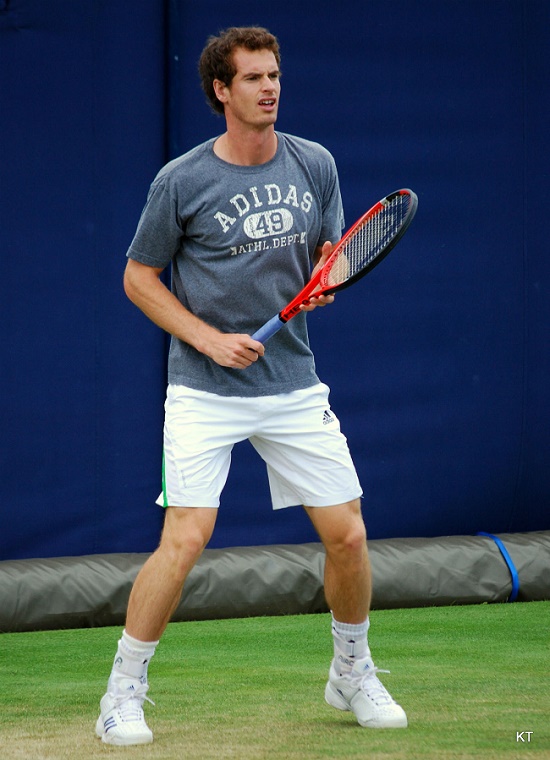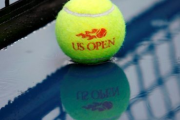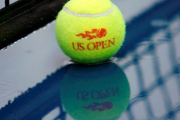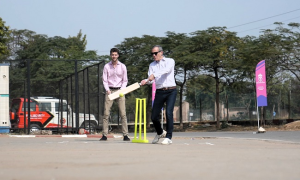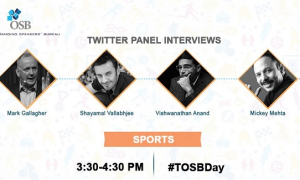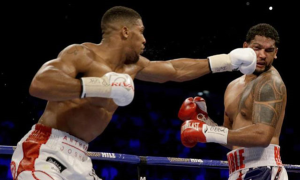Andy Murray remains the number-two tennis player in the world, according to the ATP rankings. He’s perceived as one of the so-called “Big Four” of professional tennis. He’s made 18 Grand Slam semi-finals and nine finals. He’s in his athletic prime, almost exactly the same age as Novak Djokovic. And just about everyone seems to expect him to add to his Grand Slam title tally at one point or another. Yet, after this year’s Australian Open and in the relative lull in major tournaments between Melbourne and Paris, it’s become fair to wonder if perhaps Murray’s best days are behind him already.
Heading into the Aussie Open, Murray was (as he seems to often be at the outset of a season) a trendy pick to make the final, and perhaps topple Djokovic. One analysis pointed out that Murray was on a roll after having led Great Britain to a shocking Davis Cup win, adding to previous patriotic achievements like winning Wimbledon and a gold medal for his country. The thinking was that the Scot was on top of his game heading into 2016, and perhaps even ready to raise his level of play with another patriotic opportunity (the Rio Olympics) on the horizon. Riding this hot streak and owning the number-two seed in Melbourne, Murray was justifiably the second betting favourite to win it all.
But as we now know, it wasn’t meant to be. Djokovic dismantled Murray 6-1, 7-5, 7-6(3). It was an even more lopsided win than in 2015, when Djokovic beat Murray 7-6, 6-7, 6-3, 6-0. That’s an ominous difference from a year ago given that popular opinion is that Djokovic can’t really get much better than he was in 2015, and all that’s left is for other players to try to catch up. Now, that’s not to say the result should be taken out of proportion. Players of this calibre, even when Djokovic is as hot as he’s been, aren’t separated by too much. It may be that had they played again two days later, we’d have seen a thrilling five-set match. But the results are what matter, and what we saw in the final wasn’t that close.
The obvious answer to how Murray can win another Grand Slam is that he’ll have to seize the opportunity when Djokovic doesn’t reach the final. It feels pretty likely that these two will remain the number-one and two seeds for some time to come, and as long as that’s the case, they can only meet in finals. If Djokovic were to lose early or succumb to injury (or infection, as he did in Dubai last week), Murray would at least have a better chance. Then again, his record against the other likely opponents isn’t encouraging. Murray is 11-14 against Roger Federer (and 1-5 in Grand Slams); he’s 8-7 against Stan Wawrinka (2-2 in Slams); and he’s 6-16 against Rafael Nadal (2-7 in Slams). Add those stats up and Murray is a combined 25-37 against the three players ranked directly beneath himself and Djokovic, and 5-14 in Grand Slams.
That’s not to say he doesn’t have a possible edge on those three. Federer has owned him in big matches of late, but the Swiss maestro is 34 years old and working on a comeback from knee surgery (though he’s expected to be fine physically). Nadal, as we wrote recently, may be running out of steam. And while Wawrinka has a definite argument as a top-three player in today’s game, he’s the one against whom Murray has had the most success. Still, we’re not just looking at Djokovic here. Murray is absolutely no sure thing to win a Slam just because Djokovic has a bad week.
The good news for Murray is that the next generation of tennis greats has been slow to emerge. Players like Kei Nishikori, Milos Raonic, Bernard Tomic and Grigor Dimitrov were expected to become mainstays in the top-10 and to begin competing for Grand Slams on a regular basis. They’ve all become solid professionals, but none looks close to major breakthroughs. For that reason, Murray may have a few more years of contending primarily with guys his own age and older. Simple probability would seem to dictate that as long as he holds onto the number-two ranking, he’ll have enough chances to come out on top once or twice more.
Then again, that’s what we’ve said about Nadal for years now, and it’s what we’re still saying about Federer. At a certain point, the title window closes for a tennis player. If Murray can’t figure out how to stay in a five-set match with Djokovic soon, that time might come sooner than the Scot wishes.
Tags: Andy Murray, Australian Open, Grand Slam, Novak Djokovic, Tennis

